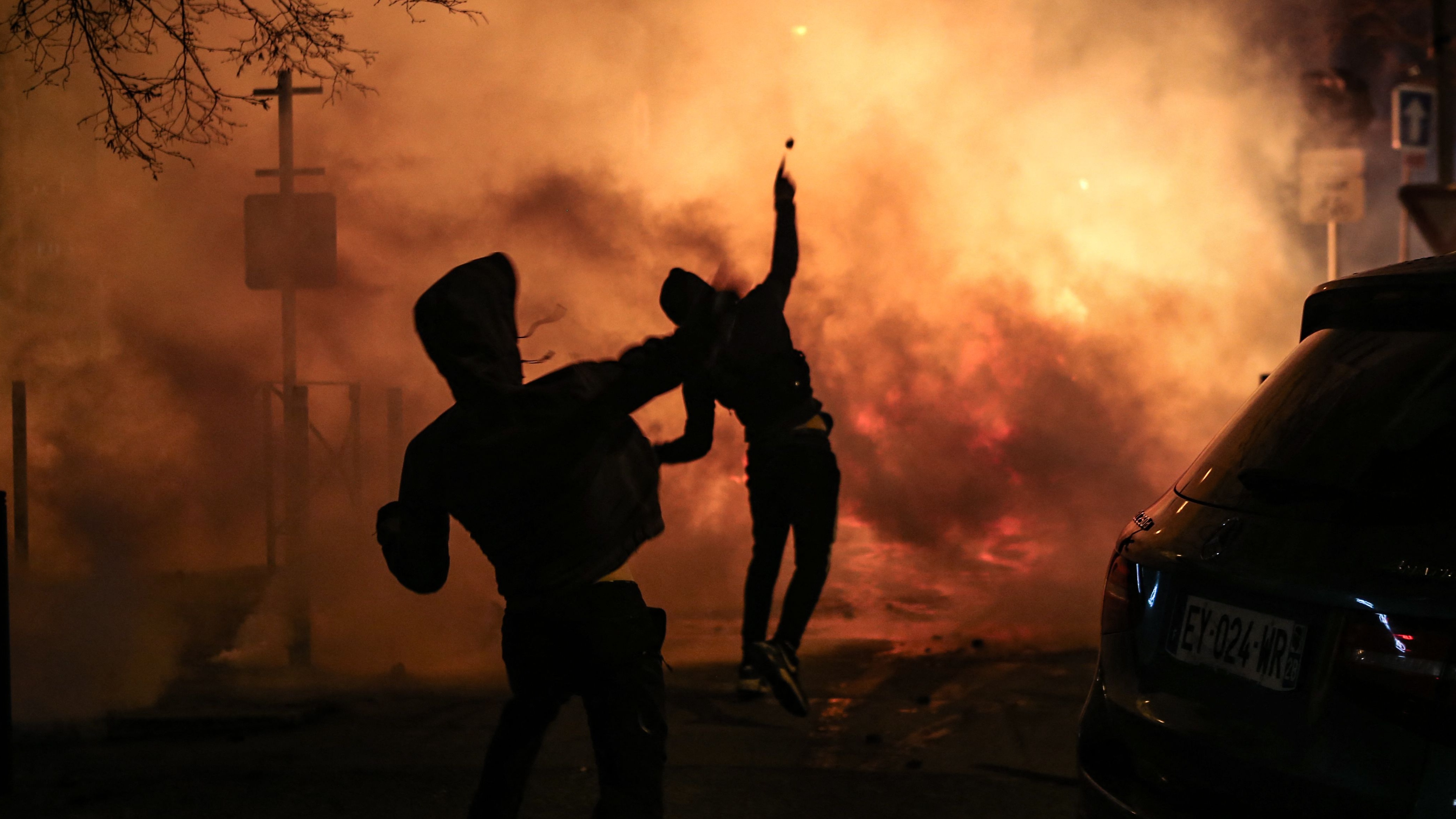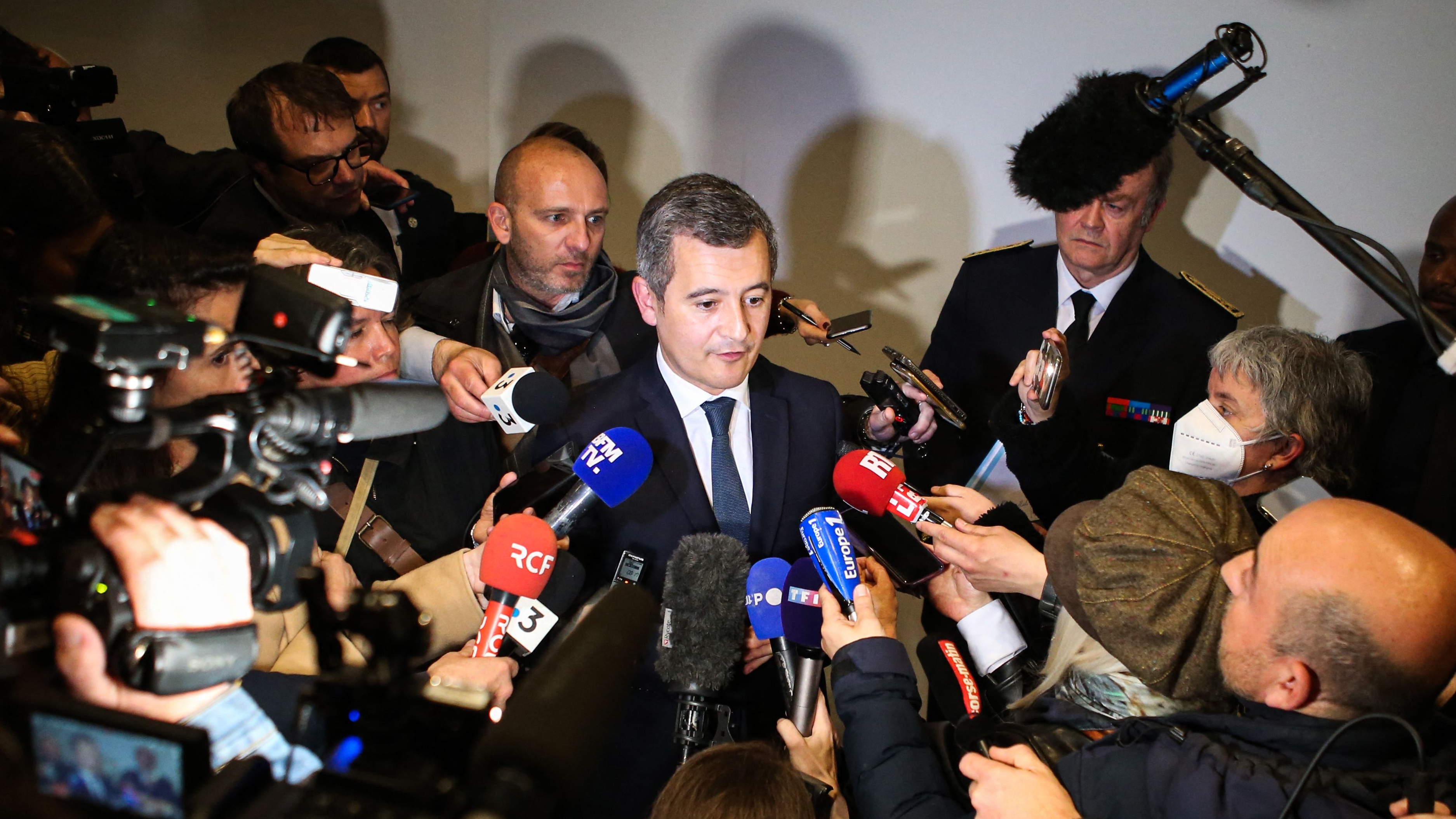Why Corsica ‘autonomy’ could end up costing Emmanuel Macron
Election rivals accuse French president of surrender to violent nationalists

A free daily email with the biggest news stories of the day – and the best features from TheWeek.com
You are now subscribed
Your newsletter sign-up was successful
Emmanuel Macron has signalled that he is willing to discuss “autonomy” for Corsica following two weeks of violent protests on the French-ruled Mediterranean island.
The demonstrations have “created a major government crisis just weeks before April’s presidential election”, said The Guardian’s Paris correspondent Angelique Chrisafis. The unrest was triggered by a “savage prison attack” on jailed nationalist Yvan Colonna in a mainland French prison.
“Hundreds of hooded protesters have thrown projectiles, molotov cocktails and homemade explosive devices at police and public buildings,” Chrisafis reported. On Sunday alone, more than 100 people, including 77 police officers, were injured during what prosecutors described as “extremely violent” clashes in Corsica’s second-largest city, Bastia.
The Week
Escape your echo chamber. Get the facts behind the news, plus analysis from multiple perspectives.

Sign up for The Week's Free Newsletters
From our morning news briefing to a weekly Good News Newsletter, get the best of The Week delivered directly to your inbox.
From our morning news briefing to a weekly Good News Newsletter, get the best of The Week delivered directly to your inbox.
Violent outbreak
Anger “erupted” on the island after Colonna, a key figure in the independence movement, was attacked by a fellow inmate in Arles jail and left in a coma, euronews reported. Colonna is serving a life sentence for his role in the 1998 assassination of Claude Érignac, then the French state’s top official in Corsica.
The high-profile nationalist had “appealed to be moved back to prison in Corsica”, citing safety fears, the broadcaster said. Following the prison attack, the French government removed his status as a “detainee of particular concern”, but the move “has failed to appease protesters”.
The assault on Colonna “stoked anger” in Corsica, “where some see him as a hero in a fight for independence from France”, said The Guardian’s Chrisafis. Thousands of protesters have marched on the streets bearing placards with slogans including “French government murderers”.
The National Liberation Front of Corsica (FLNC), “the main militant group behind 40 years of armed struggle for Corsica’s separation from France”, has warned that the protests could develop into an “insurrection”, Chrisafis continued.
A free daily email with the biggest news stories of the day – and the best features from TheWeek.com
The warning was widely interpreted as a threat that the FLNC, which has previously been linked to bomb attacks and widespread extortion, “could resume its operations”.
Police in the city of Bastia said demonstrators had already deployed “homemade explosive devices filled with gunpowder, lead or nails and threw acid”, The Telegraph’s Paris correspondent Henry Samuel reported. A mob were also said to have “set the tax office on fire and damaged the inside of the main post office”.
“It was unprecedented, we’ve never seen anything like it,” a senior police source told Le Figaro. “Protesters threw unlit Molotov cocktails on our men to cover them with petrol, and a second wave fired flares at them to set them on fire.”
De-escalation talks
Before landing on the island for a two-day visit, French Interior Minister Gérald Darmanin told Corsican newspaper Corse Matin that the government was “ready to go as far as autonomy” to stem the violence, adding: “There you go, the word has been said.”
But he warned that “there can be no dialogue while violence is going on”, stating: “A return to calm is an essential condition.”
The island was annexed by France in 1769 having been ceded to Louis XV by the Republic of Genoa in 1768. Since 1991, it has had greater “autonomy than other French regions, notably in education, the environment and transport”, The Telegraph reported.

But “Paris has rebuffed many of its demands”, the paper added, “including that the Corsican language be recognised as an official tongue” and “that only Corsican residents can own property on an island where 40 per cent of houses are second homes”.
“No details have been given” about what form autonomy could take, The Guardian said. “A discussion could examine an autonomous status in which Corsica takes charge of certain legislative powers, such as taxation, local economic development and housing.”
The proposal has been met with “a cautious welcome” by Gilles Simeoni, president of the island council, The Times reported. He told reporters that they were “important words that open up prospects, but they ought now to be extended and firmed up”.
But the FLNC “denounced” the offer of talks, the paper added, describing it as a “contemptuous denial” of Corsica’s “right” to independence.
Home front
An Ifop poll of 1,100 Corsicans published in Corse Matin on Sunday found that 53% favoured a degree of autonomy for Corsica and 35% favour the island’s outright independence from France.
But President Macron is facing fury at home, The Times reported, where his two “main rightwing opponents” in the April election have “accused him of capitulation and breaching the ancient French principle of the unitary state”.
Marine Le Pen said the offer to negotiate will send a “disastrous message”, while Valérie Pécresse, the candidate of the conservative Republicans, said the president was “giving in to violence”. Anne Hidalgo, the Socialist candidate and Paris mayor, said that “Macron’s offer was an electoral ploy to curry favour in Corsica”, the paper added.
“Most other presidential candidates have promised greater freedom for Corsica” as part of their election manifestos, The Telegraph said.
But Macron will need to tread carefully as any autonomy deal is “likely to affect the French presidential election with less than one month to go until the first round of voting”, euronews reported.
-
 Local elections 2026: where are they and who is expected to win?
Local elections 2026: where are they and who is expected to win?The Explainer Labour is braced for heavy losses and U-turn on postponing some council elections hasn’t helped the party’s prospects
-
 6 of the world’s most accessible destinations
6 of the world’s most accessible destinationsThe Week Recommends Experience all of Berlin, Singapore and Sydney
-
 How the FCC’s ‘equal time’ rule works
How the FCC’s ‘equal time’ rule worksIn the Spotlight The law is at the heart of the Colbert-CBS conflict
-
 Greenland’s capital becomes ground zero for the country’s diplomatic straits
Greenland’s capital becomes ground zero for the country’s diplomatic straitsIN THE SPOTLIGHT A flurry of new consular activity in Nuuk shows how important Greenland has become to Europeans’ anxiety about American imperialism
-
 Epstein files topple law CEO, roil UK government
Epstein files topple law CEO, roil UK governmentSpeed Read Peter Mandelson, Britain’s former ambassador to the US, is caught up in the scandal
-
 Iran and US prepare to meet after skirmishes
Iran and US prepare to meet after skirmishesSpeed Read The incident comes amid heightened tensions in the Middle East
-
 Israel retrieves final hostage’s body from Gaza
Israel retrieves final hostage’s body from GazaSpeed Read The 24-year-old police officer was killed during the initial Hamas attack
-
 China’s Xi targets top general in growing purge
China’s Xi targets top general in growing purgeSpeed Read Zhang Youxia is being investigated over ‘grave violations’ of the law
-
 Panama and Canada are negotiating over a crucial copper mine
Panama and Canada are negotiating over a crucial copper mineIn the Spotlight Panama is set to make a final decision on the mine this summer
-
 Why Greenland’s natural resources are nearly impossible to mine
Why Greenland’s natural resources are nearly impossible to mineThe Explainer The country’s natural landscape makes the task extremely difficult
-
 Iran cuts internet as protests escalate
Iran cuts internet as protests escalateSpeed Reada Government buildings across the country have been set on fire